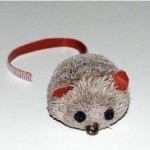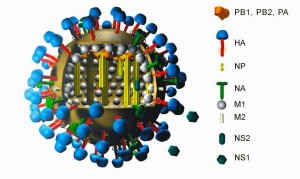 Finally! I am so glad the FDA has made it easier for us to find out about recalls of pet food products with this searchable database. Here’s hoping they did a good job.
Finally! I am so glad the FDA has made it easier for us to find out about recalls of pet food products with this searchable database. Here’s hoping they did a good job.
Thrifty Things: Towels & Bowls
 I’ve written before about some of the great things you can find for your pets at thrift stores & garage sales and I was reminded today just how much money you can save by recycling or repurposing things you find at thrift stores.
I’ve written before about some of the great things you can find for your pets at thrift stores & garage sales and I was reminded today just how much money you can save by recycling or repurposing things you find at thrift stores.
A bunch of the towels we use on the cats & dog had become pretty ragged & threadbare, but the towels we use for ourselves are still too nice to be relegated to the pets. I wasn’t about to go buy new towels for the 4 legged creatures, so I checked my favorite thrift store and found 4 thick bath towels for under $8 total, which is about the cost of one new towel.
I also needed a couple of glass bowls for water and found good sized Pyrex bowls for under $5 total that will be perfect. Pyrex is thick and pretty rugged so these bowls won’t get chipped or cracked. Sweet!
Here are some of the other things I’d try to find at a thrift store or garage sale before I bought them new:
- pet crates (This is probably the best bargain you’ll find. Crates can be pretty pricey ($20-150+), but I see them in all sizes pretty regularly at my favorite thrift store.)
- bird cages
- glass aquariums
- stainless steel pet bowls
- Habitrail components
- kitty condos (you could recover it pretty easily with carpet remnants and a staple gun)
- storage bins with lids (for storing toys or to make your own awesome litterbox)
- blankets for pet beds
Gift Ideas For Pets & People
If you don’t want to make DIY gifts and want some gift ideas for purchasing, here are some of our favorite things for pets and people.
Cats
- Furminator
- Kreature Komfort Heated Bed
- Da Bird and the Mouse Re-Fill
- Cat Vs. Cat: Keeping Peace When You Have More Than One Cat
- Cat Getting Out Of A Bag & Other Observations
Dogs
Cat Dies From H1N1 Virus
It’s been confirmed that an Oregon cat has died from H1N1 (Swine Flu). It’s believed the cat caught it from his people. The article linked to is from the Oregon Veterinary Medical Association has a wealth of information and I recommend you check it out.
The OVMA says there isn’t reason to panic. You can keep your kitties safe. If you’re feeling sick:
- wash your hands regularly
- use alcohol-based hand sanitizers
- cover your mouth & nose when you sneeze
- avoid touching your cat’s eyes, nose, & mouth
- the CDC adds, you should limit contact with your pets until 24 hours after your fever is gone
It is also possible for you to catch N1H1 from an infected pet. So wash your hands after handling sick pets.
Keep an eye out for symptoms in your cats too. Take your cat to the vet if your see signs of respiratory illness. Look for:
- coughing
- sneezing
- lethargy
- conjunctivitis (swelling & redness of the membranes around the eyes)
You also need to take special care of your ferrets. Take the same precautions as with cats and look for:
- weakness
- sneezing
- coughing
- elevated temperature
- yellow or green discharge from the nose or eyes (from a secondary infection)
Pet birds are susceptible to H1N1 and should be tested for the virus if they develop symptoms of respiratory illness. Pet pigs are also at risk for catching H1N1 and should be seen by a vet if they become ill. It isn’t known if dogs can catch H1N1.
Keep up to date on information about companion animals and H1N1 from:
H1N1 Confirmed In Cat
A cat in Iowa has caught H1N1 (swine flue), apparently from his people. He was treated by a vet and, happily, is recovering. He isn’t the first pet to get the H1N1 virus. Two ferrets also contracted the virus. Only one survived.
Don’t freak out! This is the only confirmed case where a cat has contracted H1N1 from humans, so it’s likely it’s NOT very common. You should take the same precautions with your pets that you should be taking anyway. Read what the CDC says about H1N1 and your pets:
What animals can be infected with the 2009 H1N1 virus?
In addition to humans, live swine and turkeys, we know that ferrets (which are highly susceptible to influenza A viruses) and a domestic cat have been infected with 2009 H1N1 virus. CDC is working closely with domestic and international public and animal heath partners to continually monitor this situation and will provide additional information to the public as it becomes available.How do companion animals become infected with 2009 H1N1?
All available information suggests that the ferrets and domestic cat with 2009 H1N1 infections acquired the virus through close contact with ill humans. Transmission of 2009 H1N1 virus from humans to animals appears similar to human-to-human transmissionCan I get 2009 H1N1 influenza from my pet?
Available evidence suggests that transmission has been from ill humans to their companion animals. No evidence is available to suggest that animals are infecting humans with 2009 H1N1 virus.What do I do if I am sick with flu-like symptoms and I have pets?
If you are sick with influenza-like-illness, take the same precautions with your pets that you would to keep your family and friends healthy:
- Cover your coughs and sneezes
- Wash your hands frequently
- Minimize contact with your pets until 24 hours after your fever is gone
What should I do if I suspect my pet has 2009 H1N1 influenza virus?
If members of your household have flu-like symptoms, and your pet exhibits respiratory illness, contact your veterinarian.Is there a vaccine available for my pet?
Currently, there is not a licensed and approved 2009 H1N1 vaccine for companion animals. (There is a canine influenza vaccine, which protects dogs from the H3N8 canine flu virus, but it will not protect pets against the 2009 H1N1 virus and should not be used in any species other than dogs.)How serious is this disease in companion animals?
Pet ferrets with naturally occurring 2009 H1N1 infection have exhibited illness similar in severity as seen with ferrets exposed to seasonal influenza viruses and 2009 H1N1 virus in laboratory settings, including sneezing, inactivity, and weight loss. The single confirmed cat exhibited respiratory illness and recovered with supportive care.Additional Information
American Veterinary Medical Association
http://www.avma.org/public_health/influenza/new_virus/default.aspUnited States Department of Agriculture
http://www.usda.gov/wps/portal/?navid=USDA_H1N1












